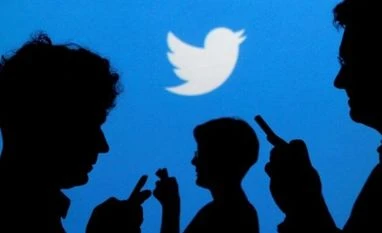Social media's importance can be gauged by the fact that Facebook now has a market capitalisation of $ 472 billion and has more than 2 billion users on the platform. There is Twitter, WhatsApp, Instagram and YouTube which also have a large number of users sharing content and views, discussing, debating or just consuming content every morning. Globally, social media exercises the highest influence on public discourse. It is this function which makes it important for governments across the world to register their presence on social media. But do governments restrict themselves to only having a presence on social media or do they go beyond it?
The Oxford Institute at the University of Oxford is trying to study this under the Computational Propaganda Research Project. A working paper titled "Troops, Trolls and Troublemakers: A Global Inventory of Organized Social Media Manipulation" studies how governments across the world, use organised teams to manipulate public opinion on social media.
According to the report, social media has also become a tool of social control. Governments now deploy significant resources on social media "to generate content, direct opinion and engage with foreign and domestic audiences".
The paper discusses strategies, tools and techniques used for social media manipulation, how these teams are organised and their behaviour & capacity.
Cyber troops are defined as government, military or political-party teams committed to manipulating public opinion over social media. The report discusses how these cyber troops are deployed on social media for propaganda purposes.
How cyber troops are deployed
The earliest reports of organized social media manipulation emerged in 2010, and by 2017 there are details on such organizations in 28 countries. In authoritarian countries, these campaigns target only domestic audiences while in democracies, they target foreign audiences. Political parties tend to focus on domestic audiences in democracies. Authoritarian regimes are not the only or even the best at organized social media manipulation, as per the report. The earliest reports of cyber troops deployment come from democracies while innovations often come from political parties.
Cyber troops could be organised in various ways. They could be government?based cyber troops. These would be public servants tasked with influencing public opinion. They can work across ministries. "In China, the public administration behind cyber troop activities is incredibly vast. There are many local offices that coordinate with their regional and national counterparts to create and disseminate a common narrative of events across the country.", says the report.
They could also be organised by political parties or politicians who are interested in shaping public opinion in their favour. This is not the same as digital campaign strategy which is largely focused on information dissemination. Often, troops hired during campaigns can continue to spread the propaganda when a politician or party assume power as seen in Phillipines.
Some times, the cyber troops could also be private contractors hired by the government. They may come to fulfill a particular role or mission. The report gives the example of Russia where Internet Research Agency, a private company, sometimes coordinates some of the Kremlin’s social media campaigns.
Cyber troops can also be a band of volunteer groups that work to spread political messages on social media. They might come together thanks to a particular ideology or objective. They can also be paid citizens hired by government. In this case they are neither public servants, nor hired by private contractors for a mission but individuals hired to work on social media strategy.
The report identifies organisational practices of cyber troop teams. These are
1. a clear hierarchy and reporting structure
2. content review by superiors
3. strong coordination across agencies or team
4. weak coordination across agencies or teams, and
The report also gives examples of how capacity building is done in various countries to strengthen these teams. In Russia, English teachers are hired to teach proper grammar to communicate with Western audiences. Other training measures focus on “politology”, which aims to outline the Russian perspective on current events. In North Korea, young computer experts are trained by the government, and top performers are selected to join the military university, as per the report.
)
)

















